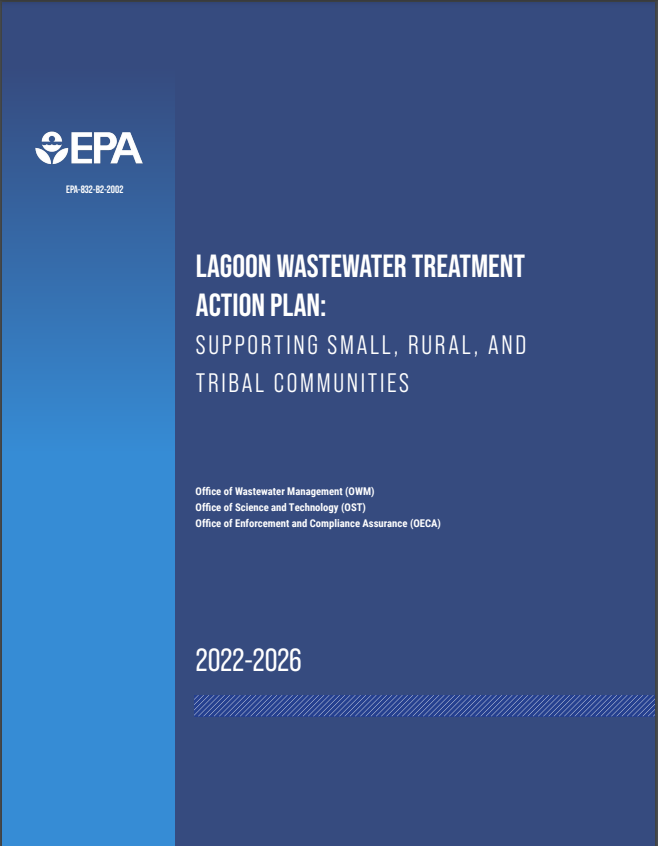Are lagoons obsolete? Despite advancements in mechanical wastewater treatment technologies, wastewater lagoons remain a reliable, cost-effective, and environmentally friendly solution—especially for small and rural communities. As we highlighted in a previous blog, EPA Supports Lagoon Systems, which outlines the Environmental Protection Agency’s ongoing initiatives to support and preserve lagoons, this proven, sustainable method of wastewater treatment isn’t going anywhere.
Here’s why lagoon systems still matter.

1. Lagoons are cost-effective and efficient
One of the most compelling reasons wastewater lagoons continue to be relevant is their cost-effectiveness. Building and maintaining mechanical treatment plants can be prohibitively expensive, especially for small communities or in rural areas. Lagoons, on the other hand, require significantly less capital investment and have lower operational costs. The natural processes at work in a lagoon—where sunlight, bacteria, and algae break down organic matter—mean that energy costs are minimal compared to more complex systems.
This low-cost advantage makes wastewater lagoons an ideal solution for municipalities with limited budgets. Moreover, for industries like agriculture and food processing, where large volumes of wastewater need to be treated, lagoons offer a practical and affordable option.
Read our blog, Hidden Costs of Replacing a Lagoon with a Mechanical Plant, for more on this topic.
2. Lagoons are environmentally sustainable
Wastewater lagoons are a naturally sustainable option. These systems rely on natural biological processes to treat wastewater, which reduces the need for chemical additives and intensive mechanical intervention. The design of lagoons allows for the gradual breakdown of organic material through a combination of aerobic (oxygen-present) and anaerobic (oxygen-absent) processes. This not only cleans the water but also returns it to a state that is suitable for discharge to a local waterway.
This sustainable wastewater treatment method aligns with modern environmental goals and provides a low-impact solution that supports water quality and ecosystem health.
3. Lagoons are adaptable to different climates and locations

Another significant advantage of wastewater lagoons is their adaptability. They can be effectively utilized in a wide range of climates, from cold climates to hot, arid regions. The natural processes involved are highly resilient and can operate efficiently with minimal human intervention, even in areas where other types of treatment systems might struggle.
Furthermore, lagoons can be designed to accommodate varying volumes of wastewater, making them suitable for both small-scale applications in rural communities and large-scale operations in industrial settings. This flexibility ensures that lagoons can continue to meet the needs of diverse users, regardless of their location or environmental conditions.
4. Lagoons have low maintenance requirements
While no wastewater treatment system is entirely maintenance-free, lagoons require relatively little upkeep compared to more technologically advanced systems. Regular monitoring and occasional dredging (every twenty years or so) to remove accumulated sludge are typically sufficient to keep a lagoon operating efficiently. This makes lagoons an attractive option for locations where access to skilled labor and technical expertise is limited.
The simplicity of lagoon systems means that they are less prone to mechanical failure or operational issues that can plague more complex treatment plants. For communities or industries with limited resources, this reliability is a crucial benefit.
5. Lagoons are a long-term, viable solution
Wastewater lagoons have been in use for over a century, and their longevity speaks to their effectiveness. While other technologies have come and gone, lagoons have remained a consistent and reliable method of wastewater treatment. Their design can be easily adapted or expanded as needed, allowing for ongoing improvements and enhancements without the need for complete system overhauls.
Moreover, as environmental regulations become more stringent, lagoons have proven adaptable to meet new requirements. Lagoons can be upgraded to achieve compliance with current environmental standards, further cementing their place as a viable option in the modern wastewater treatment landscape.
EPA support confirms lagoons are not obsolete
The Lagoon Wastewater Treatment Action Plan is a big step toward helping small, rural, and tribal communities deal with their wastewater issues. EPA is focusing on fair financial and technical help, finding low-cost solutions, and working with local partners. This plan will help these communities meet water safety rules while keeping people and the environment healthy. As this plan unfolds through 2026, it signals a federal commitment to lagoon systems—not as outdated relics, but as adaptable, sustainable solutions that support clean water goals.
Final thought: Are lagoons obsolete?
Far from it. Lagoons are not obsolete—they’re relevant, reliable, and resilient. With their cost advantages, sustainability, and adaptability, wastewater lagoon systems continue to serve as a vital part of modern wastewater infrastructure.
At Triplepoint, we’ve helped shift the industry mindset that lagoons are obsolete. Through successful installations of our advanced lagoon technologies—like Ares Aeration® and NitrOx®—we’ve proven that lagoon systems can deliver high-performance treatment that meets modern effluent standards while remaining cost-effective and sustainable. Our audacious ten-year company goal is to help drive a net increase in lagoon systems by showing that lagoons are not only viable, but essential to the future of wastewater treatment and the communities they serve. Learn more about our vision in this short video: Watch now.
Triplepoint is here to help
As always, we’re ready to help. Take advantage of Lagooniversity, a free online portal of lagoon-focused webinars on a variety of topics, many preapproved for CEU credit. We have dozens of short and long videos on our Lagoons Do It Better YouTube channel covering common lagoon challenges. If you have a general question or would like help with your lagoon system, please reach out via our contact form. Like EPA, we’re committed to preserving lagoon systems and helping communities meet their wastewater treatment requirements.

